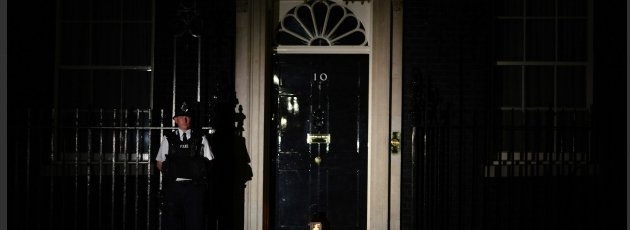- Home
- News & Blogs
- About Us
- What We Do
- Our Communities
- Info Centre
- Press
- Contact
- Archive 2019
- 2015 Elections: 11 new BME MP’s make history
- 70th Anniversary of the Partition of India
- Black Church Manifesto Questionnaire
- Brett Bailey: Exhibit B
- Briefing Paper: Ethnic Minorities in Politics and Public Life
- Civil Rights Leader Ratna Lachman dies
- ELLE Magazine: Young, Gifted, and Black
- External Jobs
- FeaturedVideo
- FeaturedVideo
- FeaturedVideo
- Gary Younge Book Sale
- George Osborne's budget increases racial disadvantage
- Goldsmiths Students' Union External Trustee
- International Commissioners condemn the appalling murder of Tyre Nichols
- Iqbal Wahhab OBE empowers Togo prisoners
- Job Vacancy: Head of Campaigns and Communications
- Media and Public Relations Officer for Jean Lambert MEP (full-time)
- Number 10 statement - race disparity unit
- Pathway to Success 2022
- Please donate £10 or more
- Rashan Charles had no Illegal Drugs
- Serena Williams: Black women should demand equal pay
- Thank you for your donation
- The Colour of Power 2021
- The Power of Poetry
- The UK election voter registration countdown begins now
- Volunteering roles at Community Alliance Lewisham (CAL)
David Cameron is right: we will soon have Black PM in No.10
The tectonic plates that have long formed the terra firma of British politics are changing. The old, tired assumptions of the past are no longer true, and new opportunities are opening up. With the end of the traditional two-party system and its long domination of British politics, come new and exciting opportunities for change.
British Prime Minister David Cameron, spoke last week about his belief that the Tory Party will gift the world, Britain’s first black Prime Minister. His calculation is based on a reading of solid facts, hardnosed calculation and a pragmatic rather than gesture type politics.
Speaking at the recent launch of 2020 Vision which set out Conservative plans to increase the number of Black and Minority Ethnic (BME) MPs, the Prime Minister told the audience:
We’re the party of the first female Prime Minister, the party of the first Jewish Prime Minister. And I know that, one day, we’re going to be the party of the first Black or Asian Prime Minister.”
He added:
I want this to be an opportunity country where no matter who you are or where you’re from, whether you’re black, white, Asian or mixed race; whether you’re from the inner city or rural heartlands, you can make the most of your talents.”
This bold commitment is a reflection of the growing diversity within the British electorate and the consistent work of Operation Black Vote that has forced mainstream political parties to ‘reframe’ their attitudes to potential BME candidates, and the wider community in general.
Of 306 Conservative MPs elected in 2010, 11 were BME. Labour had 16 BME MPs elected in 2010 while the Lib Dems had none.
In that election, the Conservative Party won only 16% of the ethnic minority vote, though the number of BME Tory MPs rose from two to ten.
Everyone from Tory polling guru Lord Ashcroft to Cameron’s campaign strategist Lynton Crosby understands the huge significance of the BME vote. In assessing the 2010 election, it became clear that the Tories had been denied an overall majority because the Party failed to win over the BME multicultural urban vote.
David Cameron’s calculation is that his party is going to have to make substantive improvements in its policy offer and levels of representation to this country’s BME population if it is to stand any chance of posing a real challenge to Labour over the next five years. Core Tory supporters are traditionally older, and they need to be replaced by a younger voters or the party is doomed to shrink in votes and influence.
The time when the BME vote could be ignored or taken for granted is gone and our politics has undergone a quiet and yet profound, cultural transformation. OBV’s research has demonstrated that the changing demography of this country means that, over the course of the last five years we have emerged as one of the key strategic constituencies, whose support is necessary for any party seeking to win the election.
The coming general election, will be one of the closest ever fought in our political history, and in 168 marginal constituencies, the number of BME people eligible to vote is greater than the margin of the sitting MP.
The strategic importance of the BME vote will only increase. Between now and 2020 we are seeing the beginnings of real changes to our political culture. This is evidenced by the number of BME candidates selected by the Tories (56) and Labour (52) fighting seats, some of them very winnable. And the mainstream parties have, for the first time, published serious BME manifesto policy documents, outlining their commitment to fight racism.
These fundamental changes have come about in part due to the work of OBV, and after almost 20 years of dogged, determined and at times controversial campaigning, we are witnessing the watershed moment when the mature and influential BME electorate come of age and assumes real power.
It is abundantly clear, that post-election we will see even more dramatic changes in the nature and diversity of our political culture.
Gone are the days when asking at a dinner party when Britain will have a Black Prime Minister would prompt anger, incredulity and laughter…No, the Prime Minister wasn’t joking, and Britain will indeed elect the first Black Prime Minister at some point before 2030. Not because of the enlightened benevolence of white male politicians, but because a large, powerful and organised black electorate will demand it.
Lee Jasper
